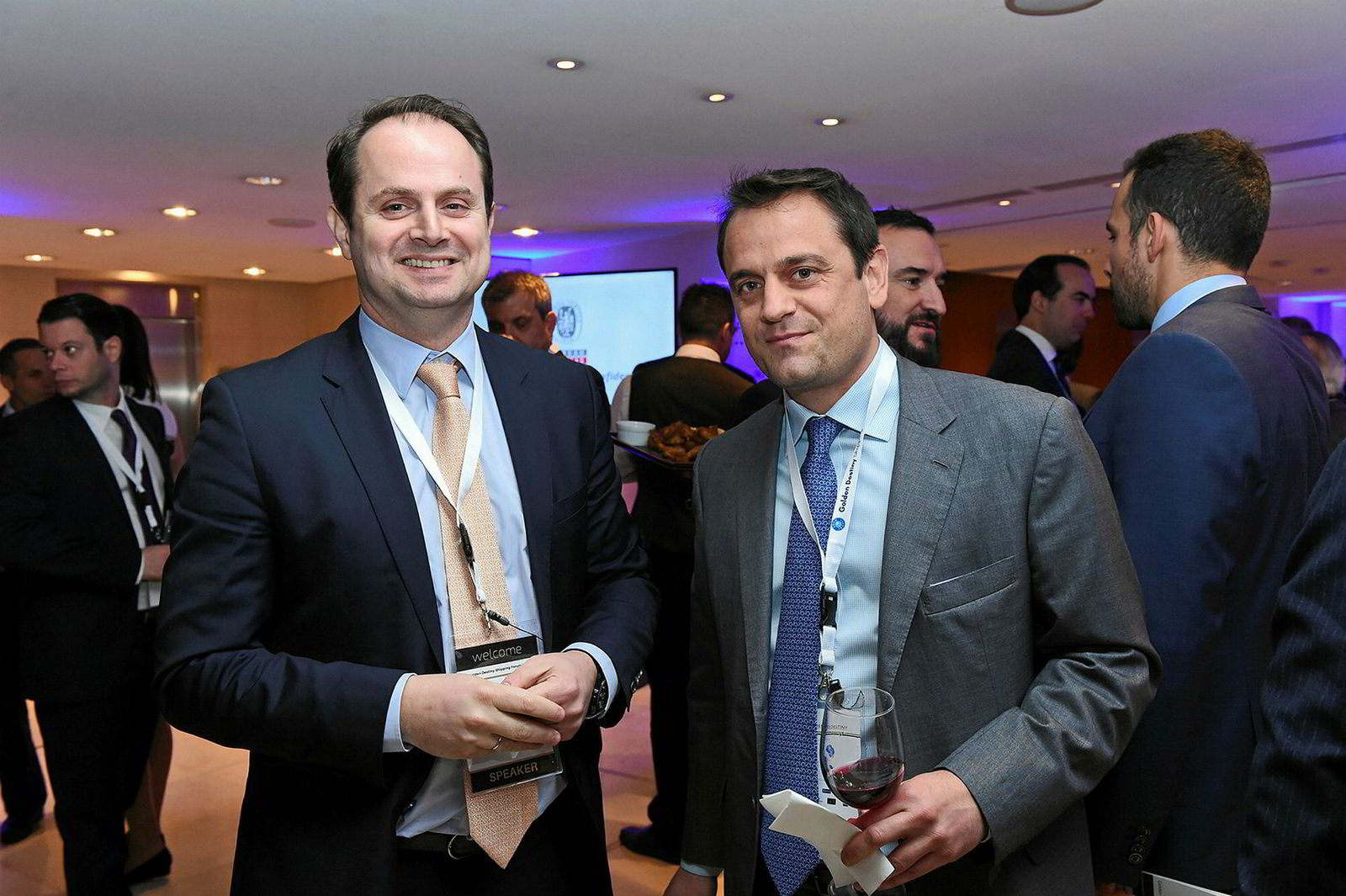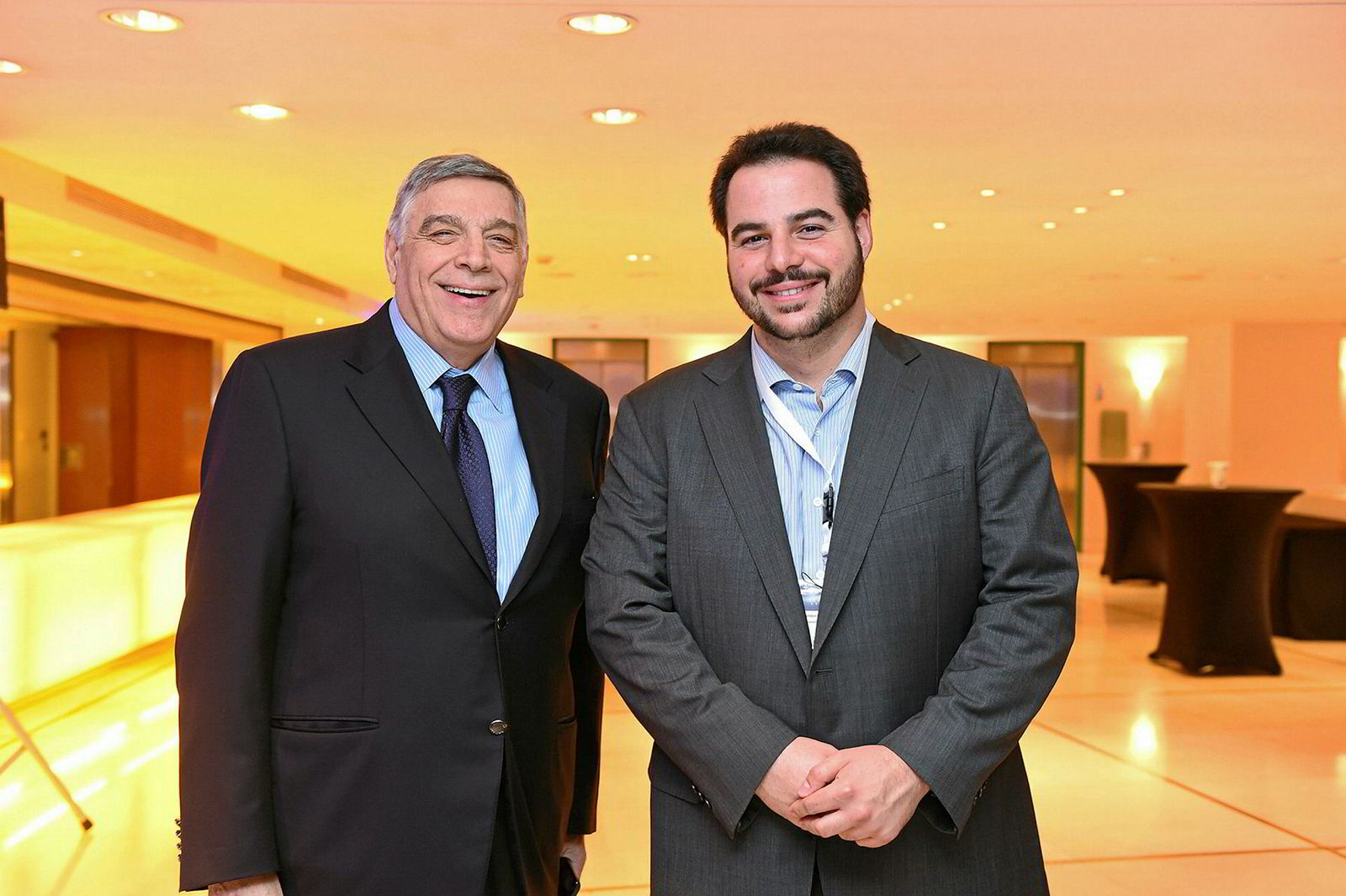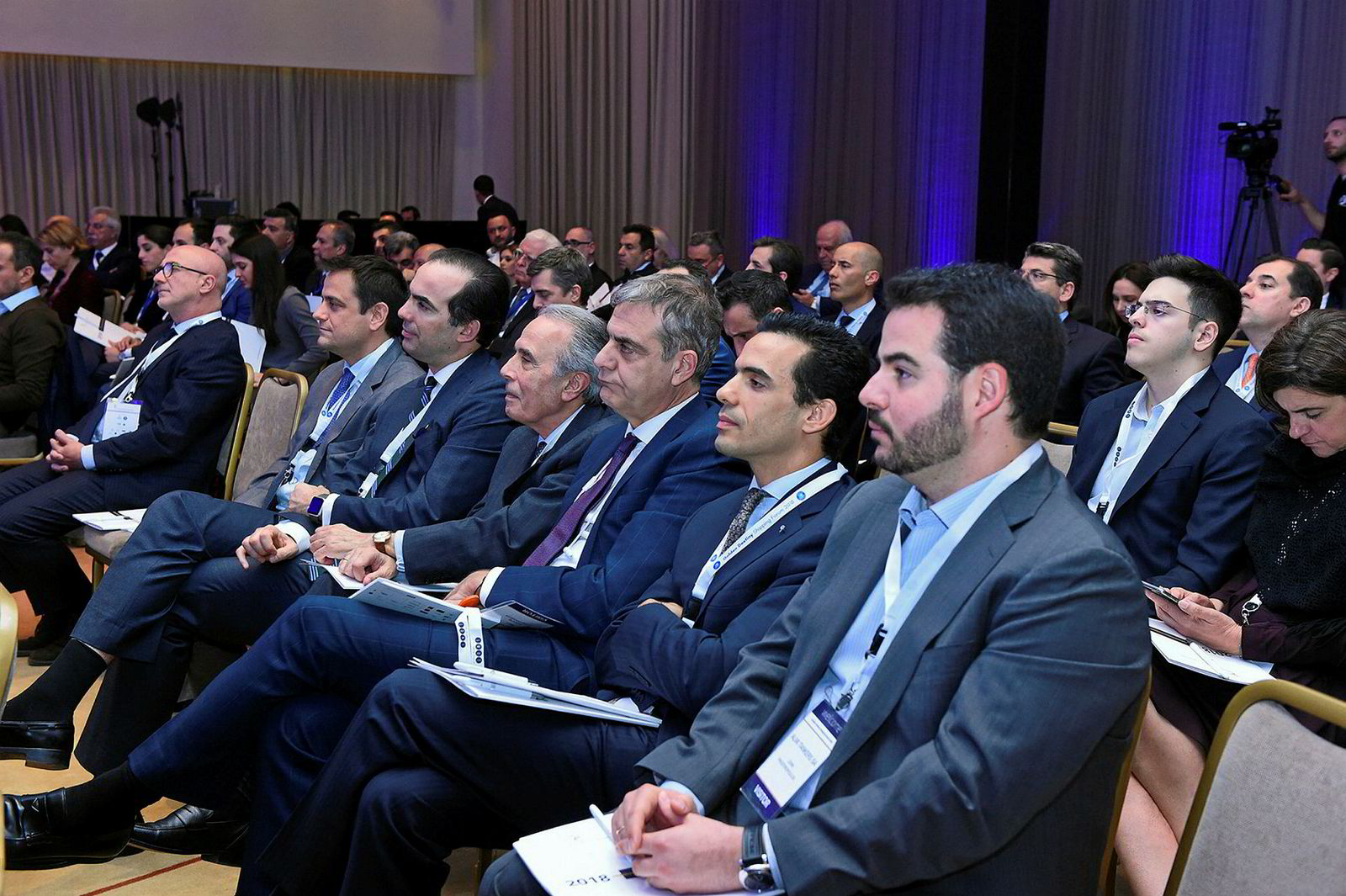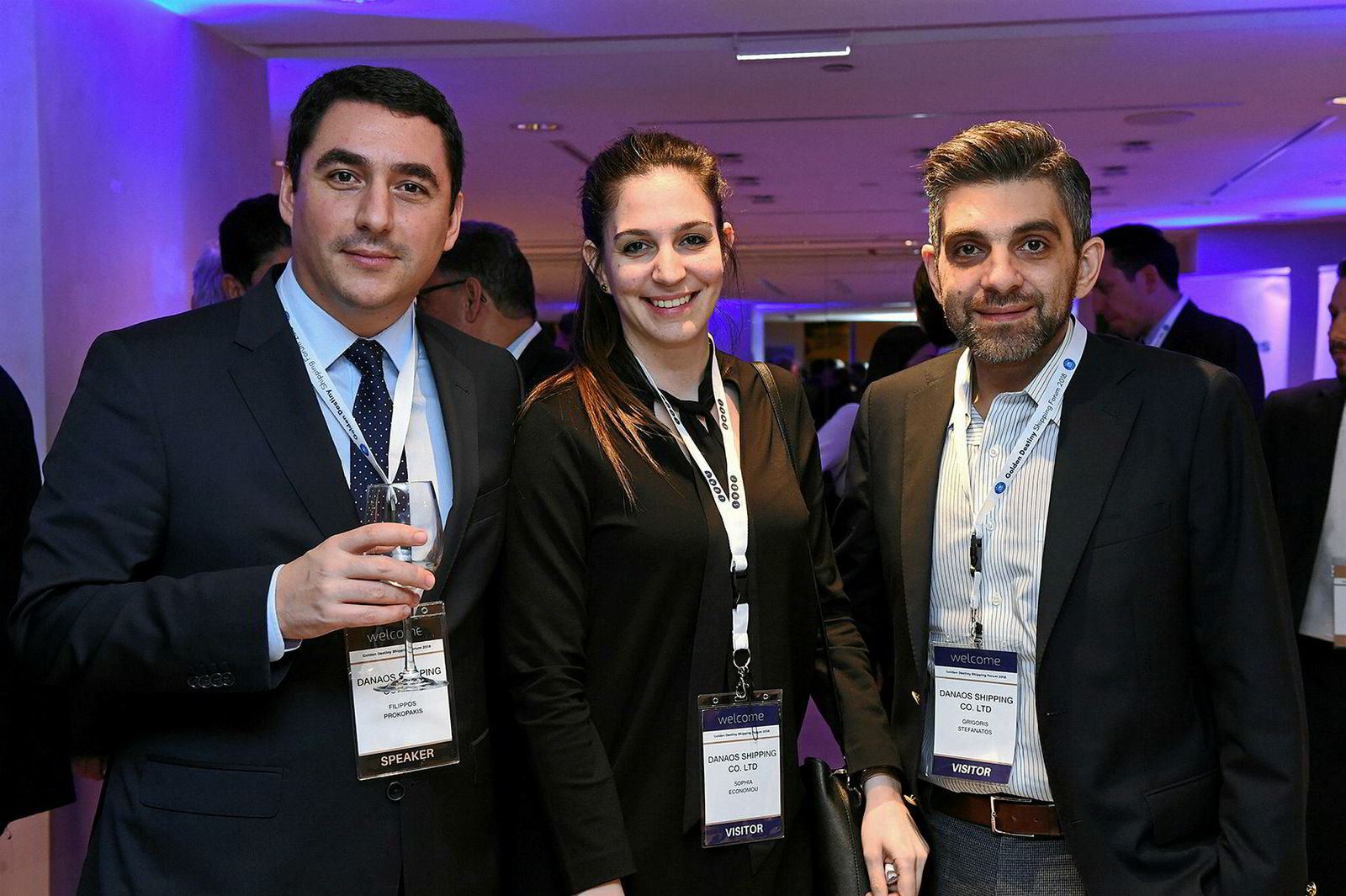A persistent lack of clarity over scrubbers is making it difficult to decide whether to install them, senior executives of Greek shipping companies recently told an Athens conference.
Questions range from the pace at which low-sulphur fuels will become available over the coming years, to the conditions of their financing.
“We haven’t decided yet how we’ll move. We’ll decide in early 2019 what to do,” Stamatis Tsantanis, chief executive of US-listed bulker owner Seanergy, said in a panel discussion at the Golden Destiny Shipping Forum.
“We’re not yet 100% sure that the price difference [between high- and low-sulphur bunkers] will be such as to justify the investment. I can’t say anything with certainty at this point. We, as a company, make our preparations.”
Jerry Kalogiratos, chief executive of US-listed Capital Product Partners and senior executive of private sponsor Capital Maritime, gave a taste of how those preparations might look.
Kalogiratos said it makes sense to order scrubber-ready newbuildings to be able to quickly move once a final decision is taken as to whether to install them. When it comes to the possible retrofitting of secondhand ships, “we will certainly wait”, he said.
Large boxship operators have recently shown their hand concerning their options on how best to cope with tighter sulphur cap rules taking effect in 2020.
Hapag-Lloyd said scrubbers were at the bottom of their sulphur solutions list. Mediterranean Shipping Co (MSC), on the other hand, is ordering very large containerships with scrubbers, while rival CMA CGM is opting for LNG propulsion over scrubbers.
Such decisions reflect different strategies, interests and possibly pre-hatched deals with fuel suppliers that large players such as MSC, CMA CGM and Maersk Line are in a position to make, the panel concurred.
LNG is looking like a viable solution for very large ships operating on specific commercial routes in certain ports, such as the Asia-Europe route, said Filippos Prokopakis, commercial manager at boxship owner Danaos Shipping.
“Those moving towards scrubbers have certainly made deals to take specific large quantities in specific ports, with a specific price differential between low- and high-sulphur fuel,” Prokopakis said.
Tsantanis said German lenders backing up scrubbers’ manufacturers are offering shipowners easy money to finance such retrofitting deals.
However, Kalogiratos said there are pitfalls. Potential financiers are asking for second liens on the ships to be equipped, complicating relations with existing lenders.
“I can’t see any immediate, easy [financing] solutions,” Kalogiratos said at the event, the first to be organised by Piraeus-based shipbroker Golden Destiny.
Shipowners brave enough to take a risk and fit scrubbers to their ships could earn a significant premium in the market, according to a recent report from Nordic bank SEB.
SEB commodities analyst Bjarne Schieldrop predicted a premium for vessels fitted with scrubbers that could prompt a rush to fit the equipment post-2020, when the 0.5% global limit on the sulphur content of fuel comes into play.
Concluding the Golden Destiny conference, which attracted more than 80 high-power clients, major Greek shipowner George Procopiou expressed a much more cynical view.
The 72-year-old owner said scrubbers are just pushed by “big lobbies set on milking the shipping industry”.
Manufacturing and then disposing of scrubbers causes pollution itself, Procopiou added.
“There isn’t a hypocrisy bigger than this,” he said.
Procopiou insisted slow steaming is a more effective way to curb pollution, reiterating an ever-spreading view among senior Greek owners.







